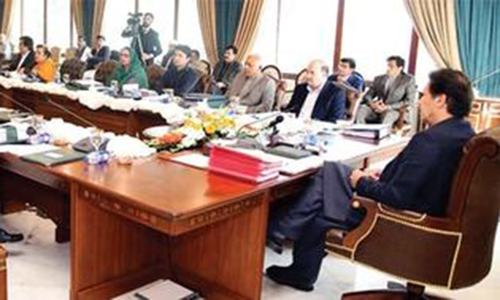THE Benazir Income Support Programme that began in 2008 with the aim to provide cash support to the poorest of the poor households across Pakistan has entered another round of controversy as its newest leadership has taken action to remove more than 820,000 people from the rolls of its beneficiaries.
The programme had attracted adverse attention throughout the decade in which it has been operational, with one army chief even going to the extent of describing the funds dispersed through it as a “waste”.
The fact that the programme has survived, and in fact grown over this time period, shows the robustness of the original design.
Now, under the leadership of Sania Nishtar, a technocrat from international NGOs, it has taken the controversial step of excluding a huge number of beneficiaries from the rolls.
Ms Nishtar is surrounded in the cabinet by those who would prefer to turn the programme into some form of political handout, and one of the complaints that they are directing at Ms Nishtar is that under her leadership, the programme is benefiting their political opponents.
Ms Nishtar deserves all the support that she can get.
The BISP must not become a regime for handing out goodies to those who vote for certain politicians. If they feel that the handouts are ‘benefiting their opponents’, they need to find some other way of delivering to their constituents rather than creating a back door for them to get onto the beneficiary rolls of the country’s largest social support programme.
But at the same time, Ms Nishtar needs to avoid creating the impression that she is moving to scan the rolls to exclude beneficiaries simply for the sake of saving money.
After thanking her cabinet colleagues following the deletion of more than 820,000 names, she also mentioned the fact that up to Rs16bn of government money would be saved as a result. That must not be the purpose of her leadership and the exercise she has just completed.
It is now imperative for her to find an equal number of new and deserving beneficiaries and add them to the rolls.
Equally important, transparency in the criteria for being excluded from the programme is necessary to avoid a situation where a government disqualifies beneficiaries on technical grounds for the sake of saving money.
Allocations, coverage, reach and targeting need to be increased, not decreased. That is the first and foremost task.
Published in Dawn, December 27th, 2019













































